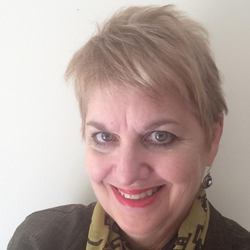Defining and addressing academic medical center workforce challenges
Identifying key obstacles is a vital step toward closing gaps in clinical research professional workforce development and diversity, equity, and inclusion (DEI) at academic medical centers (AMCs). Clinical researchers from multiple academic medical centers[i] examined these complex issues within a “Collaborative Conversations” workgroup, gathering qualitative data from “un-meeting” breakout sessions and open-text surveys.
“Un-meetings are an intentionally organized and coordinated group activity that encourages participants to focus on a topic and incorporate an open flow of ideas,” explains Carolynn Jones, DNP, MSPH, RN, FAAN, a Clinical Professor at The Ohio State University. “These interactions involve a five-minute presentation, followed by brainstorming and an open discussion in breakout sessions, setting the stage for future collaborative action.”
“The analysis found that barriers to supporting the clinical research professional workforce at AMCs include the need to improve diversity and equity, balance foundational onboarding with role-based training, manage logistical challenges and institutional contexts, identify and enlist institutional champions, assess competency, and provide high-quality mentorship,” says Jones. “While some institutions have established competency-based frameworks for job descriptions and career ladders, there is a need for broader standardization. Proposed strategies include improved collaboration with human resource departments, engagement with principal investigators, and overcoming both organizational and resource challenges, as well as pipeline development via outreach.”
The analysis included the voices of 130 clinical research professional at 45 AMCs from 30 hours of audio recordings and transcripts from 29 Zoom chats, 29 breakout session reports, and 202 open-text brainstorming sessions. Un-meetings focused on AMC clinical research professional recruitment, retention, and diversity to inform recommendations for clinical research job titles and descriptions, prerequisites, diversity, and current needs.
Collaborative Conversations: AMC Workforce Issues
Join Carolynn and Jessica in a panel discussion at ACRP 2023 [April 28 – May 1; Dallas, TX], where they’ll discuss the urgent need to close gaps in workforce turnover, attract more diverse applicants, and improve professionalization in the clinical research professional career pathway. View complete schedule.

“This work has resulted in follow-up projects examining the diversity of research participants and clinical research professional job satisfaction,” says Jessica Fritter, MACPR, ACRP-CP, Associated Faculty, Clinical Instructor of Practice, The Ohio State University. “A trial participant diversity survey provides insights on strategies for improvements, with the 149 respondents indicating that diversity planning should include multiple shareholders and address participant needs. Proposed practical applications include improved reimbursement and translation services, community outreach, and staff diversity. In addition, a job satisfaction survey – carried out by The Ohio State University, Duke University, and the University of Cincinnati – will support clinical research professional workforce improvements at the institutional level.”
“Institutional change is slow to occur and very costly,” concludes Fritter. “These initiatives will drive a data-driven approach to advocating for change and gaining institutional financial support for a well-trained and diverse clinical research professional workforce, as well as improving the diversity of clinical trial participants.”
Written by Jill Dawson
[i] The Ohio State University, Nationwide Children’s Hospital, The University of Alabama at Birmingham, the University of Cincinnati, the University of Florida, the University of Rochester, CLIC, Seattle Children’s Hospital, and Duke University.



